In a world where technological advancements are redefining the way we live and work, the role of artificial intelligence (AI) in leadership has become a hot topic. A recent webinar brought together thought leaders Tim Huff, Lyn Turknett, Bob Turknett, and Josh Turknett to discuss the transformative potential of AI in leadership. The discussion delved into the nuances of how AI can augment human capabilities, the ethical considerations it brings, and the future landscape of leadership. Here’s a thorough overview of their enlightening conversation.
Setting the Stage
Tim Huff opened the webinar with a compelling introduction, setting the tone for an engaging discussion. He acknowledged the rapid pace at which AI is advancing and its significant impact on various industries. Tim emphasized that the purpose of integrating AI into leadership roles isn’t to replace human leaders but to enhance their abilities. This introduction laid the groundwork for a detailed exploration of AI’s multifaceted role in leadership.
AI’s Transformative Impact on Decision Making
Lyn and Bob Turknett took the stage next, diving into how AI is revolutionizing decision-making processes. In today’s data-driven world, leaders are often inundated with vast amounts of information. They explained that AI’s ability to analyze and interpret large datasets quickly and accurately can provide leaders with invaluable insights. This capability allows leaders to make more informed and timely decisions, which can be crucial in a fast-paced business environment. They illustrated this point with real-world examples, demonstrating how AI has helped organizations predict market trends and customer behaviors, leading to more strategic and effective decision-making.
Building Trust in the Workplace
Trust emerged as a pivotal theme during the webinar. The speakers emphasized that while AI can significantly enhance operational efficiency, building and maintaining trust within the workplace remains a quintessentially human endeavor. Josh pointed out that trust is the foundation of any successful team, and leaders must ensure that AI tools are used in ways that are transparent and fair. He shared an example from his own experience, where AI was used to monitor performance metrics. The key to success, he noted, was clear communication with the team about how the data was being used and ensuring that it was not perceived as a “big brother” surveillance tool. Lyn added that leaders should use AI to support their teams, providing them with the resources they need to succeed rather than using AI purely as a means of control.
Human and AI Collaboration: A Symbiotic Relationship
One of the most engaging parts of the webinar was the discussion on the collaboration between humans and AI. The speakers unanimously agreed that the future of effective leadership lies in a symbiotic relationship where AI and human leaders complement each other. Josh highlighted that while AI excels at data-driven tasks, human leaders bring emotional intelligence, creativity, and ethical judgment to the table. This combination of strengths can lead to more balanced and holistic leadership. He shared anecdotes from his own experience, showing how AI tools have helped him focus on strategic planning and team building by handling routine data analysis tasks.
Ethical Considerations in AI Implementation
The ethical implications of AI in leadership sparked a thought-provoking discussion. Josh was particularly vocal about the need for leaders to be vigilant about AI biases. He pointed out that AI systems are only as good as the data they are trained on, which can sometimes be biased. Ensuring that AI tools promote fairness and transparency is critical. Lyn added that ethical leadership involves continuously monitoring and updating AI systems to mitigate biases and ensure they align with organizational values. This part of the conversation underscored the importance of ethical oversight in leveraging AI for leadership.
The Future of AI in Leadership
As the webinar drew to a close, the speakers shared their visions for the future of AI in leadership. Tim was optimistic, predicting that AI will become even more integral to leadership roles, helping leaders navigate increasingly complex environments. However, he was quick to note that the human touch will always be essential. Empathy, creativity, and moral judgment are qualities that AI cannot replicate. Lyn and Bob echoed these sentiments, emphasizing that the best leaders will be those who can seamlessly integrate AI into their leadership style while maintaining their humanity. Josh concluded with a call to action, encouraging leaders to embrace AI but to do so thoughtfully and ethically.
Key Takeaways
- AI is not a replacement for human leaders but a powerful tool that can enhance decision-making and strategic planning.
- Effective leadership in the future will depend on a symbiotic relationship between AI and human capabilities.
- Trust is a foundational element in the workplace, and leaders must ensure that AI tools are used transparently and ethically.
- Ethical considerations are paramount in the implementation of AI to ensure fairness and transparency.
- Despite AI’s advancements, human qualities such as empathy, creativity, and ethical judgment remain irreplaceable.
The webinar provided a comprehensive look at how AI is poised to transform leadership. The insights shared by Tim, Lyn, Bob, and Josh highlight the importance of balancing technological advancements with human-centric leadership practices. As we move forward, embracing AI while maintaining our humanity will be the key to successful and ethical leadership.
This enlightening discussion not only shed light on the current state of AI in leadership but also offered a roadmap for integrating AI into leadership practices in a way that enhances, rather than diminishes, human capabilities. The future of leadership is undoubtedly intertwined with AI, but it is the human touch that will ultimately make the difference.

